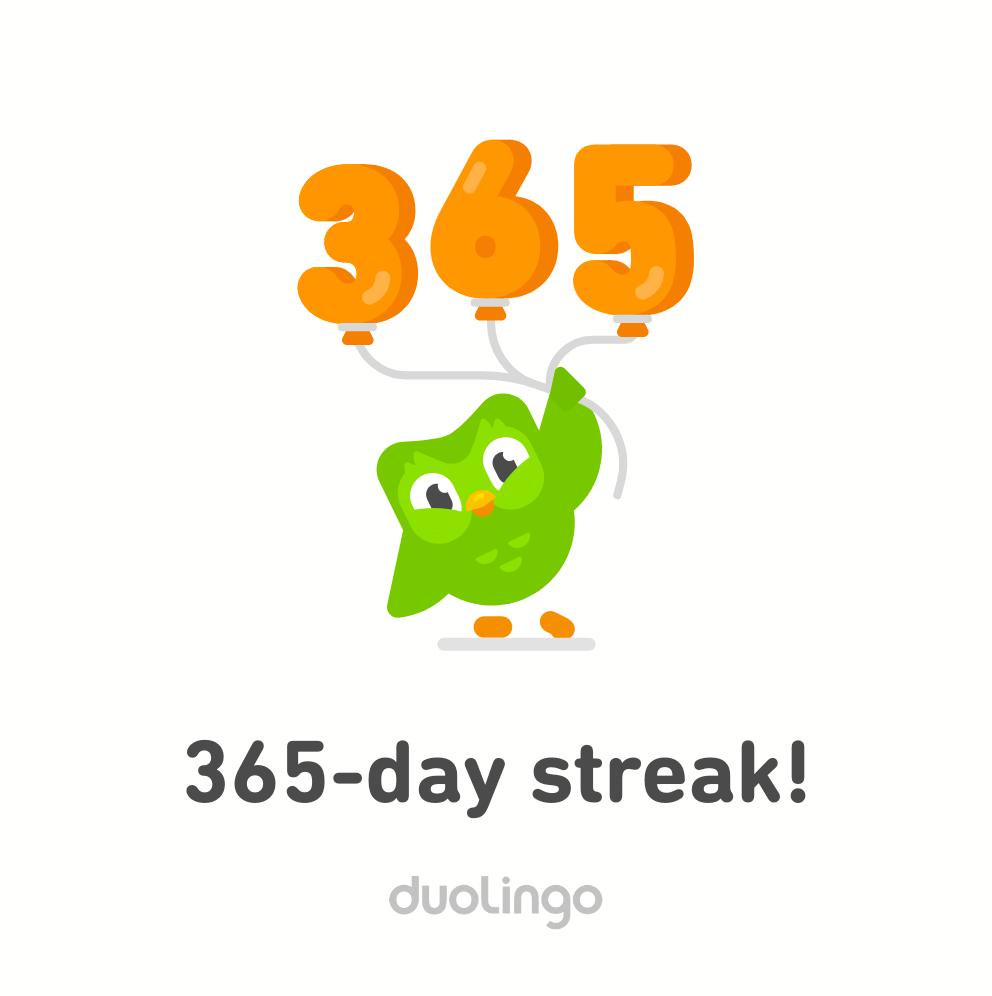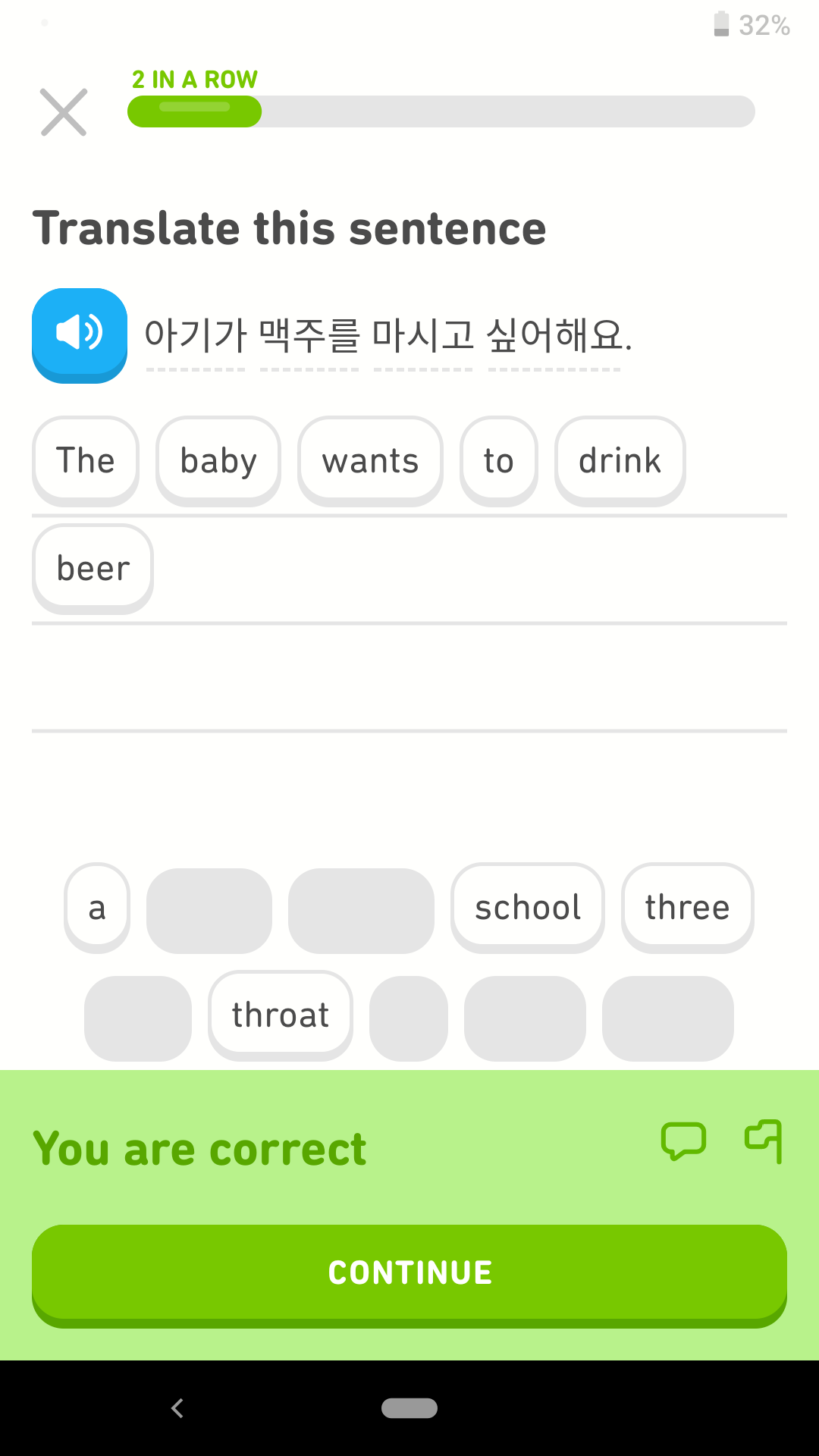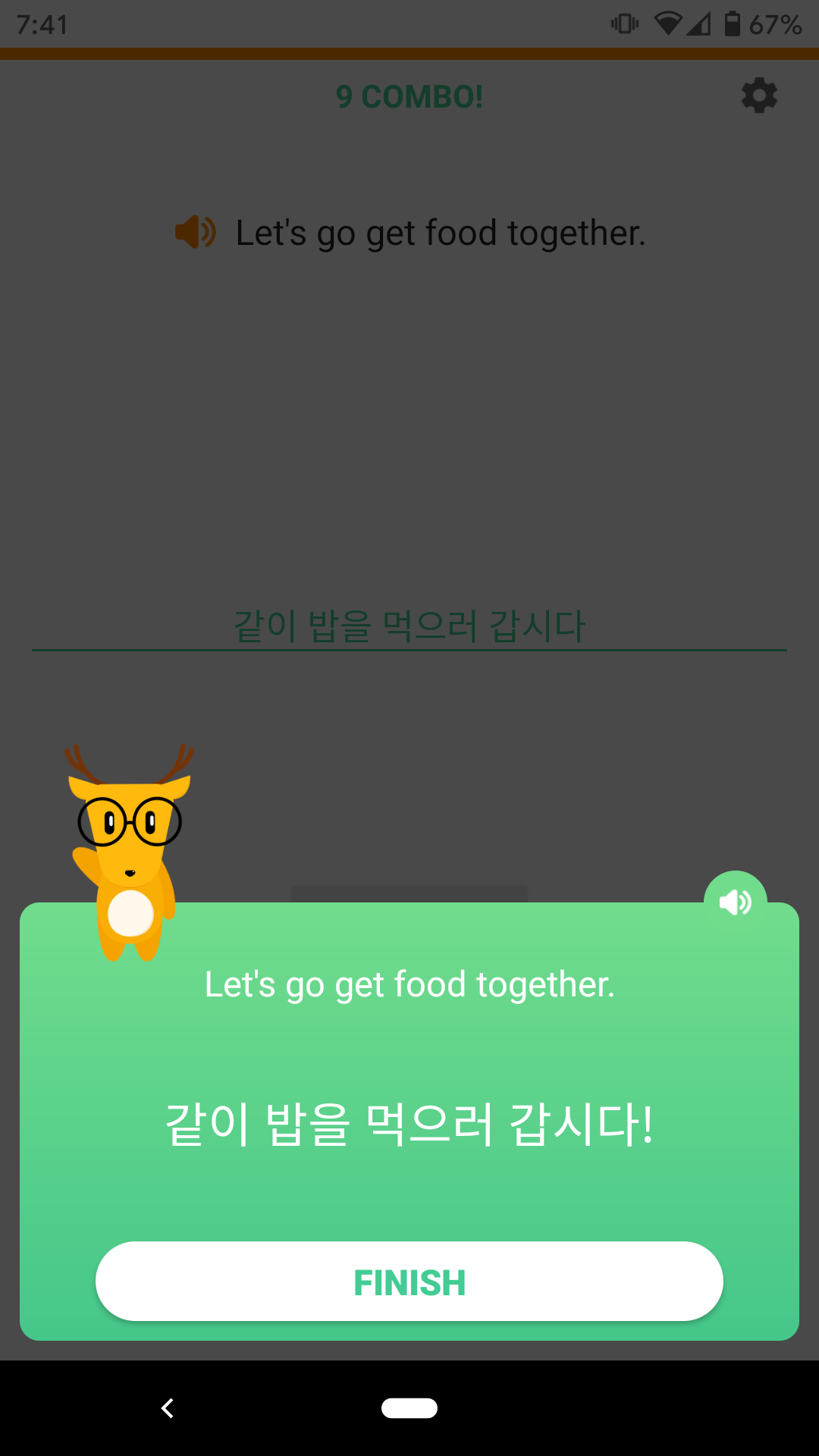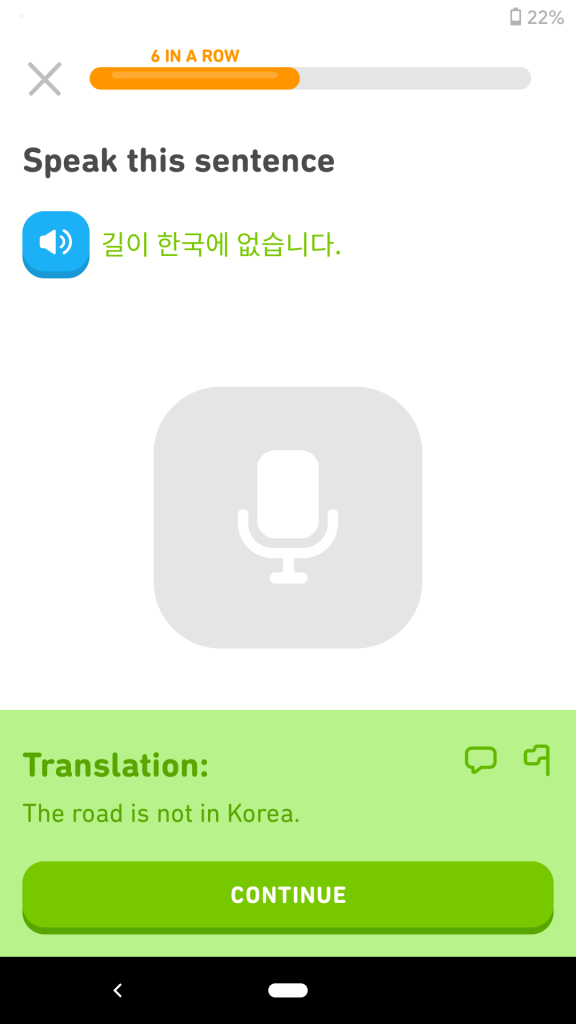Last month I reached a 365-day “streak” on the language-learning app Duolingo. This means I’ve spent a bit over a year since I started learning Korean.

Those of you who know me well know that Grace and I have been together for a long time now, and know that Grace’s parents both speak Korean as their first language. I had been thinking about learning to speak Korean for a long time, but didn’t make any moves to really start until last year. There are a few reasons why I finally started and am continuing to learn; primarily that Grace has a number of family members who speak little or no English and that we’d like the language to be the part of any future family.
My journey learning Korean started with this comic, but that didn’t get me very far. I then bought a few books, but found them difficult to get through; I had no mechanism to test whether I was learning. I then remembered Duolingo (I had tried it a few years ago for a different language) and decided to try it out again.
Duolingo was a good start, and helped me get my start reading Hangul (the Korean alphabet). But I didn’t find Duolingo to do a good job introducing concepts and helping them stick for me; the app does have general themes for each set of exercises but doesn’t do a good job of explaining the concept that ties the exercise together. Korean has very different grammar from English, and Duolingo wants to make me “intuit” the rules rather than explaining them. Duolingo’s exercises typically present you with a sentence and ask you to translate it, though it definitely has some odd choices for sample sentences.

I found another app called Drops that was interesting to try for a while too. The beginning of the Korean course teaches Hangul and I found it to be a good contrast as it teaches stroke order in addition to just recognizing the letters. But after moving on from the Hangul lessons, it turned into entirely vocabulary flashcards. That’s useful, but not quite what I was looking for.
The next app I found through reading the /r/Korean subreddit, which is a community of folks interested in learning or teaching Korean. This app is called LingoDeer and so far is my favorite of the three. LingoDeer seems to be specialized for Asian languages and focuses pretty hard on the grammar of Korean rather than introducing a lot of vocabulary quickly. Each of the lessons has introductory text explaining the concept that the lesson teaches, and during the lessons you can tap on individual words (and parts of words, like suffixes) to read more explanation. The lessons also have some audio portion where you can record yourself saying a sentence and listen back to it, but it doesn’t rate your pronunciation automatically. I’ve also found the review exercises to be more engaging; things like picking the right word or particle to make the sentence grammatical, writing a sentence out of the syllables (or typing them with a Korean keyboard), rating your own ability to translate spoken sentences, and finding what doesn’t belong in a given sentence.

I’m currently using both Duolingo and LingoDeer pretty much every day. My routine is to complete Duolingo’s review exercise (with the barbell icon), followed by one or two lessons (both of which are usually increasing the “difficulty” on topics I’ve already started), and then switch to LingoDeer for a listening review exercise, drills on grammar and vocabulary, and maybe a new lesson depending on how I’m feeling and how much time I have. I think these are good steps for me to learn Korean, but I don’t really think that the apps are sufficient on their own. I haven’t signed up yet, but I’ve been eyeing language courses offered by some schools near me and will probably sign up for one in the future.
Update: Just as I was about to update this post, I went through my Duolingo exercises and for the first time it has speaking exercises! I’m excited to use these to force me to actually speak more and (hopefully) work on my pronounciation.

